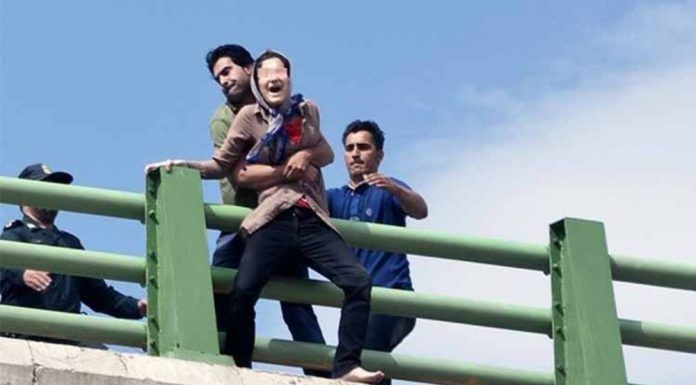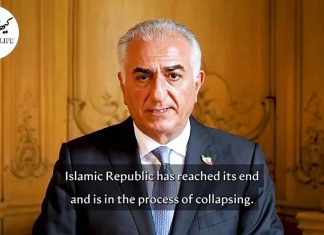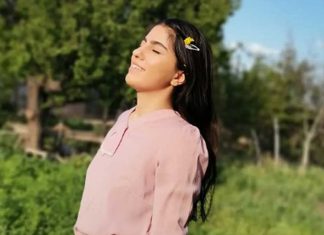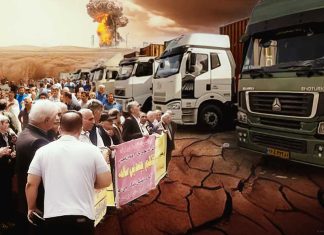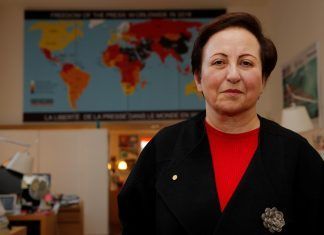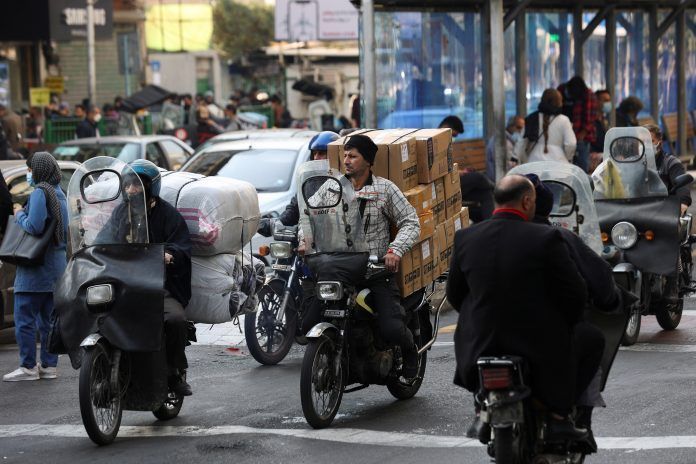
By Kayhan Life Staff
There are 100,000 attempted suicides in Iran each year. Of those, 5,500 result in death. Experts warn that the number could rise as the dire economic conditions in the country continue to force more people into poverty.
According to Taghi Rostamvandi, Deputy Interior Minister and head of the State Welfare Organization of Iran, the persistent social and economic crisis in recent years has been detrimental to the public’s resilience and ability to cope with everyday problems.
Some conservative estimates put the number of people in the country with no known address at 11,000. Many of them sleep rough in cardboard boxes, on buses, or at bus stops.
Meanwhile, the state and its security apparatus continue to crack down on protesters of all types, including teachers, workers, and pensioners, who have staged nationwide demonstrations in the past few years, demanding social and economic justice.
According to Human Rights Watch (HRW), a non-governmental organization headquartered in New York, the Islamic Republic of Iran executed at least 254 people in 2021, some of whom had taken part in protests against water shortage in the southern province of Khuzestan in July of last year.
Iran is among the countries with the highest number of executions in the world, the Human Rights Watch report said.
“Iranian authorities continued their crackdown on peaceful dissent, prosecuting human rights defenders and dissidents while serious human rights violators enjoyed impunity,” the HRW report, published in January, said. “Iran continues to be one of the world’s leading implementers of the death penalty. According to rights groups, in 2021, Iran had executed at least 254 people as of Nov. 8, including at least seven people on alleged terrorism-related charges.”
The report cites an incident in February 2021 in which the Islamic Revolutionary Guards Corps (IRGC) reportedly used lethal force against unarmed civilians in the southeastern province of Sistan and Baluchestan.
“According to the Baluchi Activists Campaign, Iran’s IRGC blocked the road residents used to transport fuel to Pakistan at the Eskan border area in the town of Saravan, in Sistan and Baluchestan Province. The security forces then apparently opened fire at those attempting to open the road, killing at least 10 people,” the report said.
Highlighting the lack of due process in the Islamic Republic judicial system, the report noted: “Iranian courts, and particularly revolutionary courts, regularly fall far short of providing fair trials and use confessions likely obtained under torture as evidence in court. Authorities have failed to meaningfully investigate many allegations of torture against detainees. Authorities routinely restrict detainees’ access to legal counsel, particularly during the initial investigation period.”
Citing another violent crackdown by security forces during the July protest over water shortage in Khuzestan Province, the report added: “Human rights groups have verified the identities of at least nine people who were shot dead or died of injuries during the protests, including a 17-year-old boy. Videos shared on social media from protests in cities in Khuzestan show security officials shooting firearms and tear gas toward protesters.”
“By violating people’s civil, political, economic, social and cultural rights, the Islamic Republic officials inflict irreparable damage to the Iranian nation,” Michael Page, HRW’s Deputy Director for the Middle East and North Africa, warned. “Changing this situation is urgent, and inevitable.”

